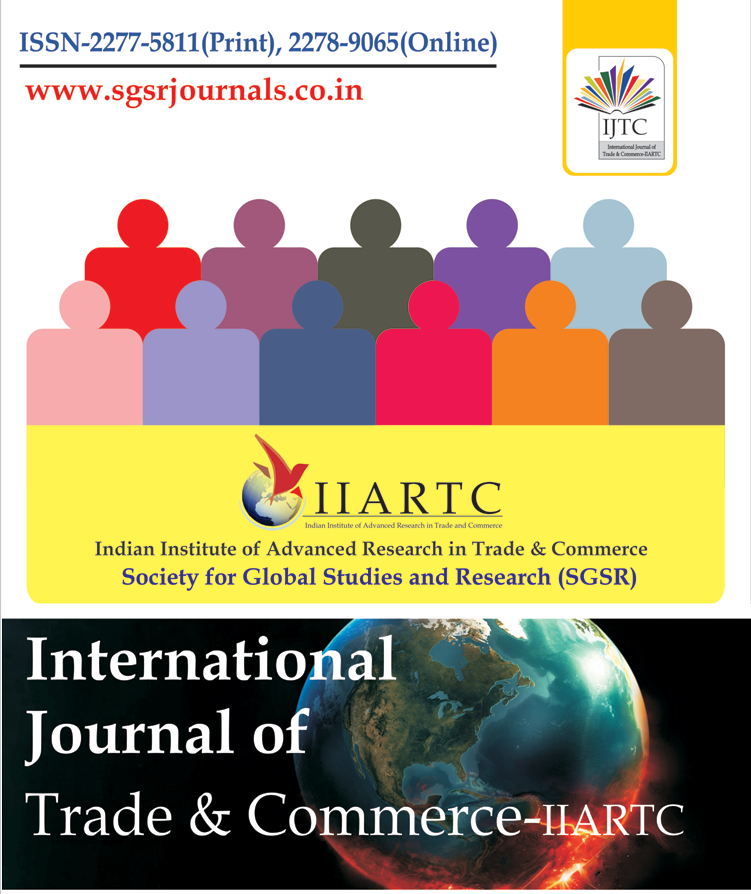Home ⇨ International Journal of Trade & Commerce-IIARTC

International Journal of Trade & Commerce-IIARTC
Impact Factor (IF):5.135 (COSMOS), IF:7.249 (ISRA), IF:3.721 (ISI)
ISSN:2277-5811 (P), ISSN:2278-9065 (O)
Frequency: Half Yearly
A Study of Trade Union and Labour Management Relations in Public Sector Enterprises: A Case Study of BHEL
The existence of a strong and recognized trade union is a prerequisite to industrial peace. Decisions taken through the process of collective bargaining and negotiations between employer and trade unions are more influential. Trade unions play an important role and are helpful in effective communication between the workers and the management. They provide the advice and support to ensure that the differences of opinion do not turn into major conflicts. The central function of a trade union is to represent people at work. But they also have a wider role in protecting their interests. They also play an important role in organizing courses for their members on a wide range of matters. Seeking a healthy and safe working environment is also prominent feature of the trade union. Labor unions developed to grant employees equal bargaining power with their employers, who traditionally had the ability to exclusively set the terms and conditions of work and pay. Unions represent workers within a given industry in negotiations with their employers. Since the union comprises a group of workers, it has a greater voice than if employees were dealing with employers individually. The National Labor Relations Act guarantees employees’ right to bargain collectively through their chosen labor union representatives. Unions can organize strikes, boycotts, go-slows and sit-ins to get employers to consider their proposals. In this research paper we focus on every aspect of trade union and labor management relations of BHEL. The finding of the study is that Trade Union done an excellent job in BHEL to protect the interest of workers and employees.
Author:Smita Singha & D.R. Yadav*b
Abstract:The existence of a strong and recognized trade union is a prerequisite to industrial peace. Decisions taken through the process of collective bargaining and negotiations between employer and trade unions are more influential. Trade unions play an important role and are helpful in effective communication between the workers and the management. They provide the advice and support to ensure that the differences of opinion do not turn into major conflicts. The central function of a trade union is to represent people at work. But they also have a wider role in protecting their interests. They also play an important role in organizing courses for their members on a wide range of matters. Seeking a healthy and safe working environment is also prominent feature of the trade union. Labor unions developed to grant employees equal bargaining power with their employers, who traditionally had the ability to exclusively set the terms and conditions of work and pay. Unions represent workers within a given industry in negotiations with their employers. Since the union comprises a group of workers, it has a greater voice than if employees were dealing with employers individually. The National Labor Relations Act guarantees employees’ right to bargain collectively through their chosen labor union representatives. Unions can organize strikes, boycotts, go-slows and sit-ins to get employers to consider their proposals. In this research paper we focus on every aspect of trade union and labor management relations of BHEL. The finding of the study is that Trade Union done an excellent job in BHEL to protect the interest of workers and employees.




